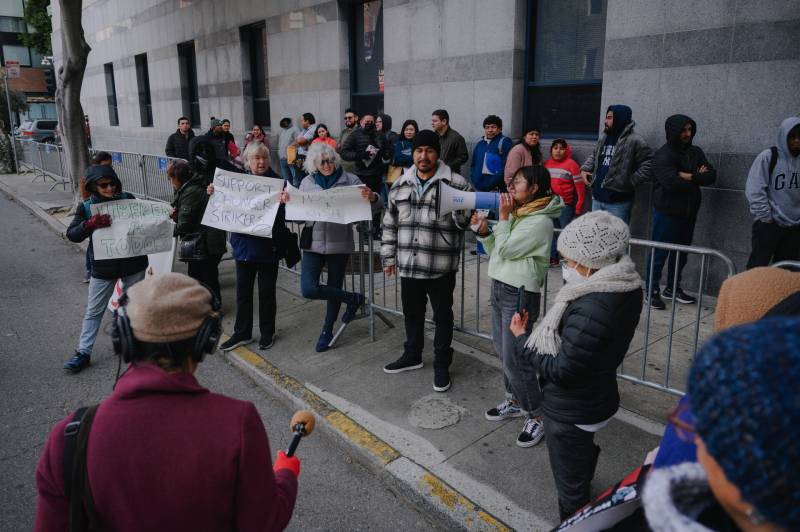A hunger strike at two California immigration detention centers is entering its third week, and immigrant advocates say U.S. Immigration and Customs Enforcement is failing to properly consider the strikers’ requests to be released.
In a letter to ICE leadership Wednesday, more than 100 faith-based groups, civil rights organizations and legal service providers charged that ICE is violating its own policies by not giving a thorough individual review to each detainee’s request to be released.
The hunger strike began Feb. 17 with 84 men held at two for-profit detention centers in Kern County, the Mesa Verde ICE Processing Center in Bakersfield and the nearby Golden State Annex in McFarland, according to advocates in close touch with the detainees.
The men are protesting what they call “soul-crushing” living and working conditions, and launched the hunger strike as an escalation of a 10-month-long labor strike, over $1-per-day pay for janitorial work. They also complain of black mold, spoiled food, sexually abusive pat-downs and the use of solitary confinement as retaliation.
An ICE spokesperson last week confirmed the hunger strike, saying it became official under agency policy as of the evening of Feb. 19, after detainees had missed nine consecutive meals. Under ICE standards, medical staff are required to carefully monitor the health of hunger strikers in detention (PDF).
ICE officials declined to comment for this story or to say how many people it considers to be on hunger strike at the two facilities.
